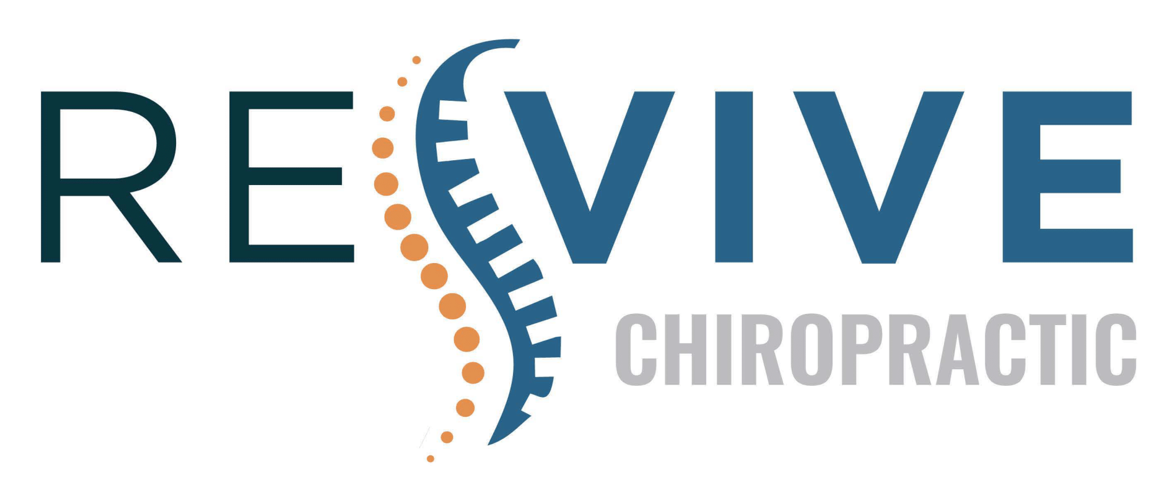If you're dealing with neck pain, you might be surprised at how effective natural remedies can be in providing relief. Simple techniques like gentle stretching and heat therapy can make a significant difference, along with herbal treatments that reduce inflammation. You may also find that essential oils offer soothing benefits in ways you hadn't considered. But before you dismiss these options, it's important to understand how they work and what specific methods might suit your needs best. Let's explore some strategies that could change your approach to neck pain management.
Understanding Neck Pain
Understanding neck pain is important for finding effective relief. You might experience neck pain due to various factors, including poor posture, muscle strain, or injuries. When you spend long hours hunched over a computer or looking down at your phone, you can strain the muscles and ligaments in your neck, leading to discomfort.
It's essential to recognize that neck pain can also stem from underlying conditions like arthritis or herniated discs, so it's critical to pay attention to your symptoms.
Identifying the type of pain you're experiencing can help you understand its source. Is it a sharp pain, a dull ache, or a throbbing sensation? Does the pain radiate down your arms or into your shoulders? If so, you may be dealing with nerve involvement.
Keeping track of when the pain worsens—perhaps after a long day at work or after sleeping in an awkward position—can offer valuable insights.
Additionally, consider any accompanying symptoms, such as headaches or stiffness. This information can guide you in addressing the root cause of your neck pain. You should also be aware that stress and tension can exacerbate discomfort, so relaxation techniques might come in handy.
Ultimately, understanding the nature of your neck pain puts you in a better position to seek targeted relief. By being proactive and informed, you can take meaningful steps to alleviate your discomfort and improve your overall well-being.
Benefits of Natural Remedies
Exploring natural remedies for neck pain can offer you a range of benefits that promote healing without the side effects often associated with pharmaceuticals. One significant advantage is that these remedies often use ingredients found in nature, making them safer for your body. You won't have to worry about the negative reactions that can come from synthetic medications.
Another benefit is the holistic approach that natural remedies take. They focus on treating the underlying causes of your neck pain rather than just masking the symptoms. This means you may find more lasting relief as your body begins to heal itself. Additionally, many natural remedies encourage you to engage in self-care practices, which can foster a deeper connection to your body and overall well-being.
You might also discover that natural remedies can be more cost-effective than prescription medications or physical therapy sessions. Many herbal treatments, essential oils, or home remedies can be made or purchased at a fraction of the cost. Plus, you can often find these remedies at your local grocery store or health food shop, making them readily accessible.
Finally, using natural remedies can empower you to take control of your health. By exploring different options and finding what works best for you, you're actively participating in your healing journey. This sense of agency can boost your confidence and motivation to maintain a healthier lifestyle, which ultimately benefits your neck and overall health.
Gentle Stretching Exercises
How can gentle stretching exercises relieve neck pain? Incorporating these exercises into your routine can help alleviate tension, improve flexibility, and promote better posture. When you stretch, you're allowing your muscles to relax and become more pliable, which can greatly reduce discomfort.
Here's how you can benefit from gentle stretching exercises:
- Increases blood flow: Stretching enhances circulation in the neck area, delivering essential nutrients and oxygen to the muscles, promoting healing and reducing pain.
- Enhances flexibility: Regular stretching helps maintain and improve range of motion, making it easier for you to perform daily activities without discomfort.
- Reduces muscle tension: Gentle stretches can release built-up tension in your neck and shoulder muscles, helping you feel more relaxed and less stiff.
- Improves posture: Stretching encourages proper alignment of your spine and neck, which can prevent future pain caused by poor posture habits.
To get started, try simple neck stretches such as neck tilts, side stretches, and chin tucks. Hold each stretch for 15-30 seconds, and repeat 2-3 times on each side.
Always listen to your body; if something feels painful, ease up or skip that stretch. Incorporating gentle stretching exercises into your daily routine can be a simple yet effective way to combat neck pain and enhance your overall well-being.
Heat and Cold Therapy
Heat and cold therapy can be a game-changer for relieving neck pain. Each method has its own benefits, and using them effectively can help you manage discomfort and promote healing.
When you apply heat, it increases blood flow to the area, which helps reduce stiffness and relaxes tight muscles. You can use a heating pad, a warm towel, or even take a hot shower to enjoy the soothing effects. Just make sure the heat isn't too intense, and limit your application to about 15-20 minutes at a time. This warmth can make a significant difference, especially if your neck pain stems from muscle tension or stress.
On the other hand, cold therapy is excellent for reducing inflammation and numbing sharp pain. Ice packs or a bag of frozen peas wrapped in a cloth work wonders. Apply the cold source for about 15-20 minutes, allowing your skin to return to normal temperature between sessions. Cold therapy is particularly helpful right after an injury or if you notice swelling in your neck.
Experimenting with both heat and cold can help you discover what works best for your specific situation. You might find alternating between the two offers the best relief.
Remember to listen to your body; if something feels uncomfortable, stop and adjust your approach. By incorporating heat and cold therapy into your routine, you can take proactive steps toward managing neck pain effectively.
Herbal Treatments
Herbal treatments offer a natural approach to alleviating neck pain that many people find effective. If you're looking for relief without turning to over-the-counter medications, consider incorporating herbal remedies into your routine.
Here are some popular options that may help reduce inflammation and ease discomfort:
- Turmeric: Known for its anti-inflammatory properties, turmeric can be consumed in teas, capsules, or added to meals. The active compound, curcumin, helps combat pain and swelling.
- Ginger: Similar to turmeric, ginger also possesses strong anti-inflammatory effects. You can enjoy ginger tea or incorporate fresh ginger into your cooking to help soothe your neck pain.
- Devil's Claw: This herb has been used traditionally for pain relief. You can find it in capsules or tinctures. It's particularly beneficial for muscle and joint pain, making it suitable for neck discomfort.
- Willow Bark: Often referred to as nature's aspirin, willow bark has analgesic properties. It's available as a tea or in capsule form and may provide relief for muscle tension in the neck.
When trying these herbs, be sure to consult with a healthcare professional, especially if you're taking other medications.
Essential Oils for Relief
If you're looking for a natural way to ease neck pain, essential oils might be just what you need.
Some oils, like lavender and peppermint, are known for their soothing properties.
Let's explore the top essential oils and the best ways to apply them for relief.
Top Essential Oils
What can essential oils do for your neck pain relief? These concentrated plant extracts can help reduce inflammation, improve circulation, and promote relaxation, making them effective for alleviating neck pain.
Here are four top essential oils you might consider:
- Peppermint Oil: Known for its cooling effect, peppermint oil can help ease muscle tension and improve blood flow to the area.
- Lavender Oil: Renowned for its calming properties, lavender oil can reduce stress and promote relaxation, which may help relieve tension in your neck.
- Eucalyptus Oil: This oil has anti-inflammatory properties and can help clear muscle stiffness, making it a great choice for neck pain relief.
- Rosemary Oil: Often used for its pain-relieving qualities, rosemary oil can enhance circulation and decrease muscle soreness.
Incorporating these essential oils into your routine can provide natural relief for your neck pain.
However, remember to choose high-quality oils and consider your individual sensitivities before use.
Application Methods
To effectively relieve neck pain with essential oils, you can explore several application methods that maximize their benefits.
One popular method is topical application. Mix a few drops of your chosen essential oil, such as lavender or peppermint, with a carrier oil like coconut or jojoba oil. Gently massage this blend into your neck and shoulders to soothe tension and promote relaxation.
Another effective method is inhalation. Add a few drops of essential oil to a diffuser or a bowl of hot water. Inhale the steam deeply, allowing the aromatic compounds to penetrate your senses and help alleviate pain. You can also create a personal inhaler by soaking a cotton ball in essential oil and carrying it with you.
If you prefer a more indirect approach, consider adding essential oils to your bath. Just mix a few drops with a carrier oil and add it to warm bathwater. Soaking in the bath can help relax your muscles while you enjoy the soothing scents.
Whichever method you choose, always do a patch test first to verify you don't have any adverse reactions.
Enjoy the natural relief that essential oils can offer!
Posture Improvement Techniques
Maintaining good posture is essential for preventing and alleviating neck pain. Poor posture can lead to muscle strain and tension, making your neck vulnerable to discomfort. By adopting better posture habits, you can greatly reduce the risk of neck pain.
Here are some techniques you can implement right away:
- Be Mindful of Your Head Position: When sitting or standing, keep your head aligned over your shoulders. Avoid jutting your chin forward, as this adds strain to your neck muscles.
- Adjust Your Workstation: If you spend long hours at a desk, make sure your computer screen is at eye level. Your chair should support your lower back, and your feet should rest flat on the floor.
- Strengthen Your Core: A strong core supports your spine and helps maintain proper alignment. Incorporate exercises like planks and bridges into your routine to enhance core stability.
- Take Breaks and Move: Sitting still for extended periods can lead to stiffness. Set a timer to remind yourself to stand up, stretch, and move around every hour. Simple neck stretches can help relieve tension.
Relaxation and Stress Management
To effectively manage neck pain, you need to incorporate relaxation and stress management techniques into your routine.
Deep breathing, mindfulness meditation, and gentle stretching can help relieve tension and improve your overall well-being.
Deep Breathing Techniques
Deep breathing techniques are a simple yet powerful way to manage stress and promote relaxation, especially when dealing with neck pain.
When you focus on your breath, you not only calm your mind but also release tension in your body, particularly in your neck.
Here's how you can practice deep breathing effectively:
- Find a Quiet Space: Choose a comfortable spot where you won't be disturbed. Sit or lie down in a relaxed position.
- Inhale Deeply: Breathe in slowly through your nose, allowing your abdomen to expand. Count to four as you inhale, filling your lungs completely.
- Hold Your Breath: Pause for a moment at the top of your inhalation. This helps increase oxygen flow and enhances relaxation. Count to four again.
- Exhale Slowly: Release your breath gently through your mouth for a count of six. Focus on letting go of any tension or stress.
Mindfulness Meditation Practices
Building on the calming effects of deep breathing, mindfulness meditation practices offer another effective approach to relaxation and stress management. By focusing your attention on the present moment, you can reduce the mental clutter that often leads to stress and tension in your neck.
Start by finding a quiet, comfortable space where you can sit or lie down without distractions.
Begin your practice by closing your eyes and taking a few deep breaths. As you inhale, visualize calmness entering your body, and as you exhale, imagine stress leaving. Shift your focus to your thoughts, acknowledging them without judgment. If your mind wanders, gently bring your attention back to your breath.
Incorporating mindfulness into your daily routine can help you cultivate a greater sense of awareness and promote relaxation. Aim for just a few minutes each day, gradually increasing the time as you become more comfortable.
Over time, you'll likely notice a reduction in neck pain and an overall improvement in your well-being. Mindfulness meditation not only helps you manage stress but also empowers you to respond to discomfort with greater resilience.
Gentle Stretching Exercises
Incorporating gentle stretching exercises into your daily routine can greatly alleviate neck pain and promote relaxation.
These exercises help to release tension, improve flexibility, and enhance blood circulation in your neck and shoulders. By dedicating just a few minutes each day, you can experience significant relief.
Here are four effective gentle stretches to evaluate:
- Neck Tilts: Sit or stand comfortably, and tilt your head towards one shoulder, holding for 15-30 seconds. Repeat on the other side.
- Chin Tucks: Gently tuck your chin towards your chest while keeping your back straight. Hold for 5 seconds, then release. Repeat 5-10 times.
- Shoulder Rolls: Roll your shoulders forward in a circular motion 5 times, then reverse direction. This helps release tension in the upper back and neck.
- Cat-Cow Stretch: On all fours, alternate arching and rounding your back while gently moving your head. This stretch improves spinal flexibility and reduces stiffness.
Lifestyle Changes for Prevention
Making simple lifestyle changes can greatly reduce your risk of developing neck pain. Start by paying attention to your posture throughout the day. Whether you're sitting at a desk, using your phone, or lifting objects, maintaining proper alignment will help prevent strain. Keep your screen at eye level and use ergonomic furniture to support your neck and back.
Next, prioritize regular physical activity. Engaging in exercises that strengthen your neck and upper back muscles will enhance stability and flexibility. Consider low-impact activities like swimming, yoga, or pilates, which can promote overall body awareness and reduce tension.
Don't forget to incorporate stretching into your daily routine to keep your muscles limber and relaxed.
Another essential aspect is to manage stress effectively. High stress levels can lead to muscle tension, particularly in your neck. Practice relaxation techniques such as deep breathing, meditation, or even mindfulness to help you unwind.
Adequate sleep is also vital; aim for a comfortable pillow that supports your neck's natural curve.
Lastly, evaluate your daily habits. If you spend long hours on a computer or device, take regular breaks to move around and stretch. Hydration is equally important, as staying well-hydrated can prevent muscle cramps and stiffness.
Conclusion
Incorporating natural remedies for neck pain relief can greatly enhance your well-being. By embracing gentle stretching, heat and cold therapy, and herbal treatments, you can effectively manage discomfort and reduce inflammation. Don't forget the power of essential oils and improving your posture. By prioritizing relaxation and making lifestyle changes, you can prevent future issues and take control of your health. Start your journey towards a pain-free neck today, and enjoy the benefits of a more comfortable life.



